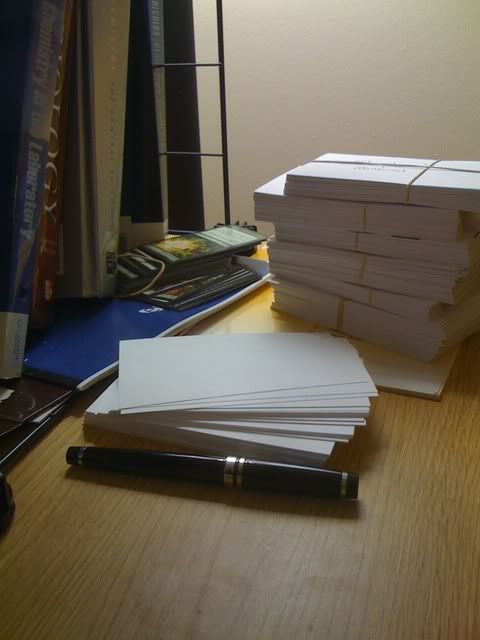Quote:
Originally Posted by Gatto /img/forum/go_quote.gif
I've come to the conclusion that my study habits are bad for trees, this is only two subjects worth of cards and this is only week 3 of the semester
|
Oh my... I know that my oldest brother uses a certain application on his Mac, where it's basically doing exactly the same thing as flash cards do, but it's all digital. This makes it (theoretically) more organized and tidy, and also cuts out the tree-killing aspect.
Unfortunately, I don't know what the app is called, or I'd tell you.
My study habits go something like this:
I listen to the lecture, taking notes if I think something is particularly important
or likely to be forgotten. I do homework as soon as possible after class, preferably while still at the college. This allows me convenient access to help from college staff, as well as provides me a quiet atmosphere conducive to schoolwork and studying. If I wait too long before doing my homework, then I find myself wasting a lot of time flipping through the textbook, both because the memory is not as fresh, and because I have only the textbook to help me with any problems. Plus, I just can't seem to focus when I'm at home -- there are too many distractions!
At the college, I have one thing to do: study. Problem solved!
When it comes to exam time, I review all the notes I made in or after class, as well as any quizzes, tests, or assignment sheets I got back from the instructor. I usually mark what section of the text the notes relate to as I'm taking them, which helps me later to quickly refer to the appropriate chapter if necessary. Looking over my marked assignments helps me to identify problem areas, and try to focus more on them.
Last but not least, I always give myself at least a week to review before writing a test. No cramming for me, thanks!
The neural connections forged in intense cramming sessions are quickly lost... not to mention the devastating effects that loss of sleep have on your performance.













